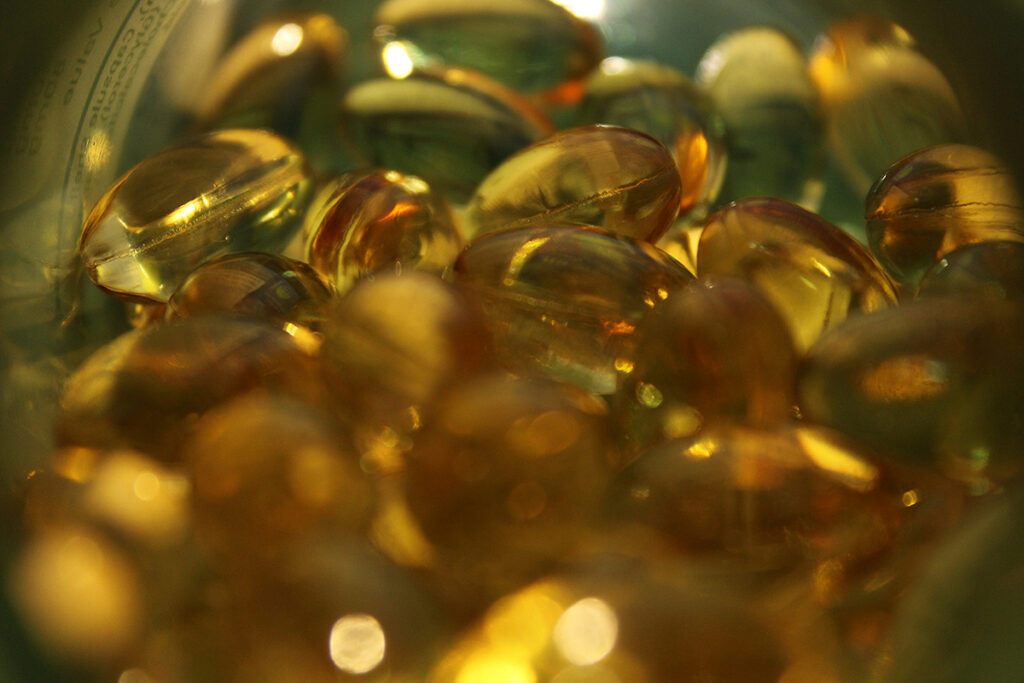Contents
- Symptoms of Depression
- Mechanisms of Depression Development
- Depression Therapy: Medications and Treatment Goals
- A New Approach to Depression Treatment – Folic Acid Intake
- Folic Acid Intake in Combination with Antidepressants: Meta-Analysis
- Depression-Fighting Diet
- Products and Supplements That Reduce Depression
- Conclusion
- References
Depression Symptoms
Major depressive disorder (MDD) is one of the most common mental disorders in the United States. Every year, about 11 million people over 18 experience an episode of MDD. By 2034, depression is predicted to be the leading cause of disability in the United States.
MDD reduces the quality of life and leads to functional impairment compared to life before the depression. Symptoms of major depressive disorder:
- change in mood;
- anhedonia;
- lack of interest;
- little or no energy;
- change in appetite;
- weight change;
- worthlessness feeling most days during 2 weeks.
Mechanisms of Depression Development
Depression is a multifactorial condition, with causes including:
- Biochemistry: Changes in the levels of certain chemicals in the brain can contribute to depressive symptoms.
- Genetics: 20% of depression is associated with genetic predisposition.
- Personality: Individuals with low self-esteem, who are easily stressed and generally have a pessimistic outlook, are more prone to depression.
- Environmental factors and comorbidities: Persistent violence, neglect, abuse, poverty, and thyroid or brain dysfunction can contribute to depression.
Stress and inflammation play a vital role in the development of depression. Stress alters the activity of the sympathetic and parasympathetic nervous systems, triggering inflammatory reactions and activating the innate immune system. In depression, levels of pro-inflammatory cytokines and the activity of brain immune cells increase.
In depression, the level of the BDNF protein, essential for brain health, decreases. At the same time, reduced BDNF levels contribute to depression and stimulate chronic inflammation. Chronic inflammation leads to decreased serotonin levels, disruption of neuroplasticity, and worsening depression.
Depression Therapy: Medications and Treatment Goals
The main goal of treatment for MDD is to reduce the symptoms of depression as much as possible and return the patient to a normal life. Treatment is successful if depressive symptoms are reduced by more than 50%. The patient’s condition is assessed in six categories:
- functioning at home, work, or school;
- self-service ability;
- positive relations with others;
- emotional control;
- personal development;
- no depressive symptoms.
Monotherapy with antidepressants, such as selective serotonin reuptake inhibitors (SSRIs), serotonin and noradrenaline reuptake inhibitors (SNRIs), mirtazapine, and bupropion, treats MDD. Improvement is not immediate – patients may take 3-6 weeks to respond to SSRI/SNRI treatment. At the same time, in more than 60% of patients, there is no improvement in depressive symptoms, and more than 70% of patients experience a re-episode of MDD after stopping treatment.
A New Approach to Treating Depression – Folic Acid Supplementation
A safe and effective strategy for treating depression for patients who do not respond to a standard antidepressant is to increase levels of nutrients such as l-methylfolate, SAMe, vitamin E, and omega-3 fatty acids.
L-methylfolate is a bioavailable form of folic acid. Folic acid (vitamin B9) is a water-soluble vitamin of group B. Folic acid is important for synthesizing monoamines: serotonin, adrenaline and norepinephrine. Folic acid is not synthesized in the body but comes from food. Once in the body, folic acid is converted into l-methylfolate, penetrating the blood-brain barrier and promoting monoamine synthesis.
Low folate levels are associated with an increased risk of depression, severe depressive symptoms, prolonged duration of depressive episodes, and increased risk of relapse. In addition, folate deficiency has been associated with a lack of response to antidepressant treatment.
Patients with schizophrenia, bipolar disorder, autism, and major depression have a genetic mutation that results in low l-methylfolate levels in the central nervous system, resulting in monoamine depletion. For these patients, folic acid supplementation may be particularly helpful. Folic acid is safe as there are few interactions with other medications and few side effects.
Folic Acid Supplementation in Combination with Antidepressants: a Meta-Analysis
American scientists conducted a systematic review and meta-analysis of 6 randomized controlled trials in which adult patients with depression who took SSRIs / SNRIs received additional folic acid supplements. The total number of participants was 584 patients; about half received antidepressants alone, and the other half received antidepressants along with folic acid. The duration of treatment is from 4 to 10 weeks.
Adding folic acid to SSRI/SNRI therapy may reduce depressive symptoms:
- Patients who took folic acid combined with SSRIs/SNRIs were 36% more likely to respond to treatment than those who received SSRIs/SNRIs alone.
- Patients receiving additional folic acid therapy were 39% more likely to experience remission.
- Depressive symptoms in patients who were supplemented with folic acid were significantly reduced.
- The effect of folic acid supplementation developed early in treatment (4 weeks) and persisted throughout treatment (≥ 8 weeks).
Diet Against Depression
Inflammation and disruption of antioxidant protection play a significant role in depression. Diets with anti-inflammatory and antioxidant properties can reduce the production of pro-inflammatory cytokines and oxidative stress in the brain, contributing to alleviating depression.
The Mediterranean diet and fish oil supplements improve mental health. The effect of such a diet can last up to six months. Traditional diets rich in vegetables, fruits, olive oil, nuts, fish, and whole grains reduce the risk of depression and alleviate anxiety.
On the contrary, the Western diet, rich in fast food, refined products, saturated fats, and simple carbohydrates, promotes the development of depression. Saturated fats and refined carbohydrates intensify inflammation and oxidative stress, disrupt the gut microbiome and gut-brain interaction, cause hippocampal degeneration, and lead to nutrient deficiencies, all of which contribute to depression.
Products and Supplements that Reduce Depression
Products with anti-inflammatory and antioxidant properties and products that lower triglyceride and low-density lipoprotein cholesterol levels can help prevent and treat depression. Among such products and supplements:
- Fiber lowers total cholesterol levels, triglycerides, and low-density lipoprotein cholesterol.
- Omega-3 supplements, especially eicosapentaenoic acid. Omega-3 can influence serotonin and BDNF levels and reduce the production of pro-inflammatory cytokines.
- Folic acid is necessary for synthesizing serotonin, adrenaline, and noradrenaline.
- Vitamin D – maintains normal calcium levels in neurons, suppresses microglial inflammatory reactions, and promotes serotonin synthesis.
- Polyphenols found in green tea – possess antioxidant activity.
- Vitamin B12.
Details of the review are in the article “How to Eat for Depression.” The review was published in the Antioxidants journal.
Conclusion
High consumption of fruits, vegetables, olive oil, nuts, fish, and whole grains, as well as reducing the consumption of meat, meat products, commercial baked goods, trans fats, sweet desserts, and beverages, can reduce the risk of depression.
Inflammation plays a significant role in the development of depression. Therefore, products and supplements with anti-inflammatory and antioxidant properties and products that lower triglyceride and low-density lipoprotein cholesterol levels can help prevent and treat depression. Among such supplements are fiber, omega-3, vitamin B12, vitamin D, polyphenols, and folic acid.
Folic acid supplementation with SSRIs/SNRIs is effective and safe for treating MDD. Folic acid supplementation improves response to antidepressant treatment, remission and reduces depressive symptoms.
Useful article, necessary information? Share it!
Someone will also find it useful and necessary:
References
- Folate as adjunct therapy to SSRI/SNRI for major depressive disorder: Systematic review & meta-analysis
- Linking What We Eat to Our Mood: A Review of Diet, Dietary Antioxidants, and Depression



